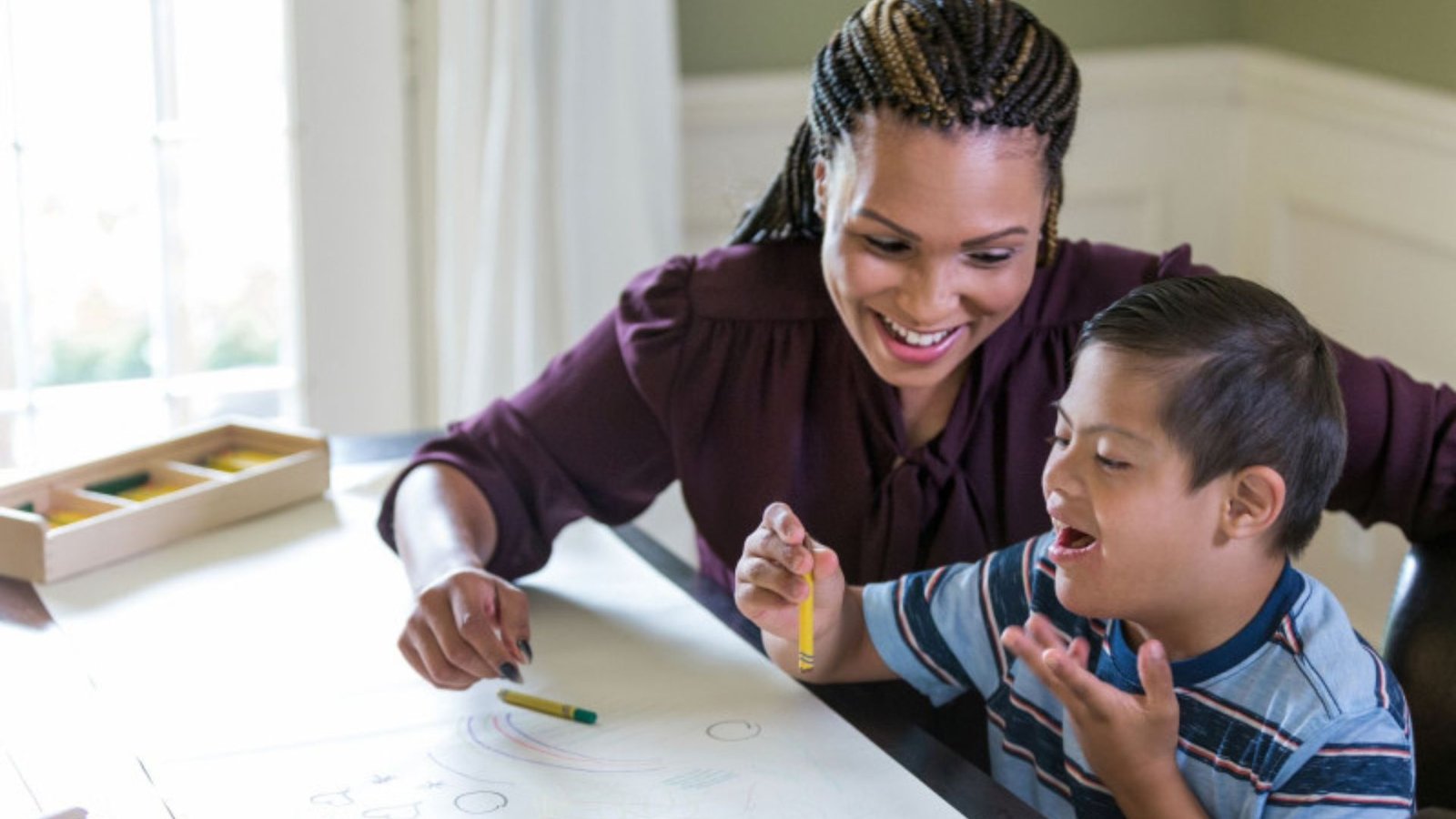|
Getting your Trinity Audio player ready...
|
Children with special needs require additional support and resources to thrive. As caregivers and educators, it’s essential to understand their unique challenges and provide them with the tools and assistance they need to reach their full potential. In this article, we’ll explore various strategies and resources available for supporting children with special needs.

Understanding “Special Needs”
The term “special needs” covers a broad spectrum. It’s a way to describe a child who may need extra help because of a physical condition, learning difficulty, or emotional challenge. Special needs can be temporary or lifelong, and each child’s experience is unique.
For instance, a child might need help learning to read due to dyslexia, while another might need physical assistance due to a mobility issue. Regardless of the specific challenge, the key is that these children benefit from extra support that helps them succeed in their daily lives.
Types of Special Needs
Children with special needs can experience different types of challenges. Let’s break them down:
Physical Special Needs
These include conditions that affect a child’s physical development, movement, or abilities. Examples are cerebral palsy, muscular dystrophy, or visual impairments. Children with physical special needs might use assistive devices like wheelchairs, hearing aids, or communication boards.
Cognitive or Learning Disabilities
Children with cognitive or learning disabilities may struggle with traditional educational methods. Dyslexia, ADHD, and intellectual disabilities fall into this category. These children may need customized teaching approaches, such as one-on-one tutoring, extra time on tests, or visual aids to support their learning.
Emotional and Behavioral Needs
Some children face emotional or behavioural challenges, such as autism spectrum disorder (ASD), anxiety, or oppositional defiant disorder (ODD). These conditions affect how children interact with others, manage emotions, or respond to changes in their environment. Support may include therapy, behavioural interventions, or structured routines to help them feel secure and understood.
Developmental Delays
Sometimes children don’t meet developmental milestones at the same pace as their peers. This can happen in areas like speech, motor skills, or social interaction. Developmental delays can be mild or more pronounced, and early intervention can often help children catch up.
Signs and Diagnosis of Special Needs
Identifying that a child has special needs often starts with noticing signs that their development is different from typical children. Some signs include difficulty speaking, problems with coordination, trouble focusing, or difficulties interacting with peers.
A formal diagnosis usually involves evaluations by professionals, such as paediatricians, psychologists, or specialists. This process can involve a combination of physical exams, educational assessments, and behavioural observations. Once a diagnosis is made, families and schools can work together to create a plan for support.
The Importance of Early Intervention
Early intervention is key to helping children with special needs develop essential skills. The earlier a child receives support, the better their chances of overcoming or managing their challenges. For example, speech therapy for a child with language delays or physical therapy for a child with motor difficulties can make a big difference in their progress.
Programs like Early Intervention Services (for children under 3) or special education services in schools (for children aged 3 and up) are designed to provide tailored support. These programs focus on the child’s strengths while addressing areas where they need extra help.
Supporting Children with Special Needs
Children with special needs thrive in environments that understand and accommodate their unique challenges. Here are some ways to offer support:
In the Classroom
Children with special needs often have Individualized Education Plans (IEPs) or 504 Plans in school. These are legal documents that outline the accommodations and support a child will receive. This might include modified lesson plans, extra time on tests, or access to special education services.
Teachers also play a crucial role by using different teaching strategies, such as hands-on learning or breaking down tasks into smaller steps. Creating an inclusive classroom where all students feel valued is vital.
At Home
Parents and caregivers can create a supportive environment at home by establishing routines, providing structure, and being patient with their child’s needs. Encouraging open communication and celebrating small victories can help build the child’s confidence.
Additionally, working with professionals such as therapists, tutors, and counsellors can provide targeted support. Resources like visual schedules or sensory-friendly spaces can also make daily life more manageable for children with special needs.
In Social Settings
Children with special needs may struggle with social interactions, but this doesn’t mean they can’t make friends or enjoy social activities. Structured playdates, social skills programs, and group activities designed for children with similar needs can be helpful. Encouraging participation in activities they enjoy, whether it’s art, sports, or music, fosters inclusion and helps build social skills.
The Role of the Community
The entire community plays a role in supporting children with special needs. Schools, healthcare providers, support groups, and neighbours can all contribute to a more inclusive environment. Raising awareness about special needs helps reduce stigma and encourages others to offer empathy and support.
Communities that provide accessible facilities, inclusive recreational programs, and specialized services create opportunities for children with special needs to participate fully in life. Programs like Special Olympics, inclusive playgrounds, and adapted sports leagues are examples of community efforts that make a difference.
FAQs
What does “special needs” mean?
“Special needs” refers to children who require additional support due to physical, cognitive, emotional, or behavioural challenges. This could affect how they learn, communicate, or interact with others, and they may need accommodations in areas like education or daily activities.
What types of special needs do children have?
Children may have physical disabilities, cognitive or learning disabilities (like dyslexia), emotional or behavioural challenges (like autism), or developmental delays. Each child’s needs are unique and require tailored support.
How can I determine if my child has special needs?
Signs of special needs can vary, but some indicators include difficulty communicating developmental delays, or challenges with social interactions. A formal diagnosis from a healthcare professional is necessary to determine if a child has special needs.
What is early intervention, and why is it important?
Early intervention involves providing support to children with special needs at a young age (typically before age 3). It is important because it helps address developmental issues early on, improving a child’s chances of catching up or managing their challenges effectively.
Conclusion
In conclusion, supporting children with special needs requires a multifaceted approach that addresses their unique abilities, challenges, and circumstances. By understanding their individual needs, creating inclusive environments, implementing personalized education plans, accessing support services, building strong support networks, promoting inclusion and acceptance, and advocating for accessibility, we can empower children with special needs to thrive and succeed in all aspects of life.
You will find the following information useful:

